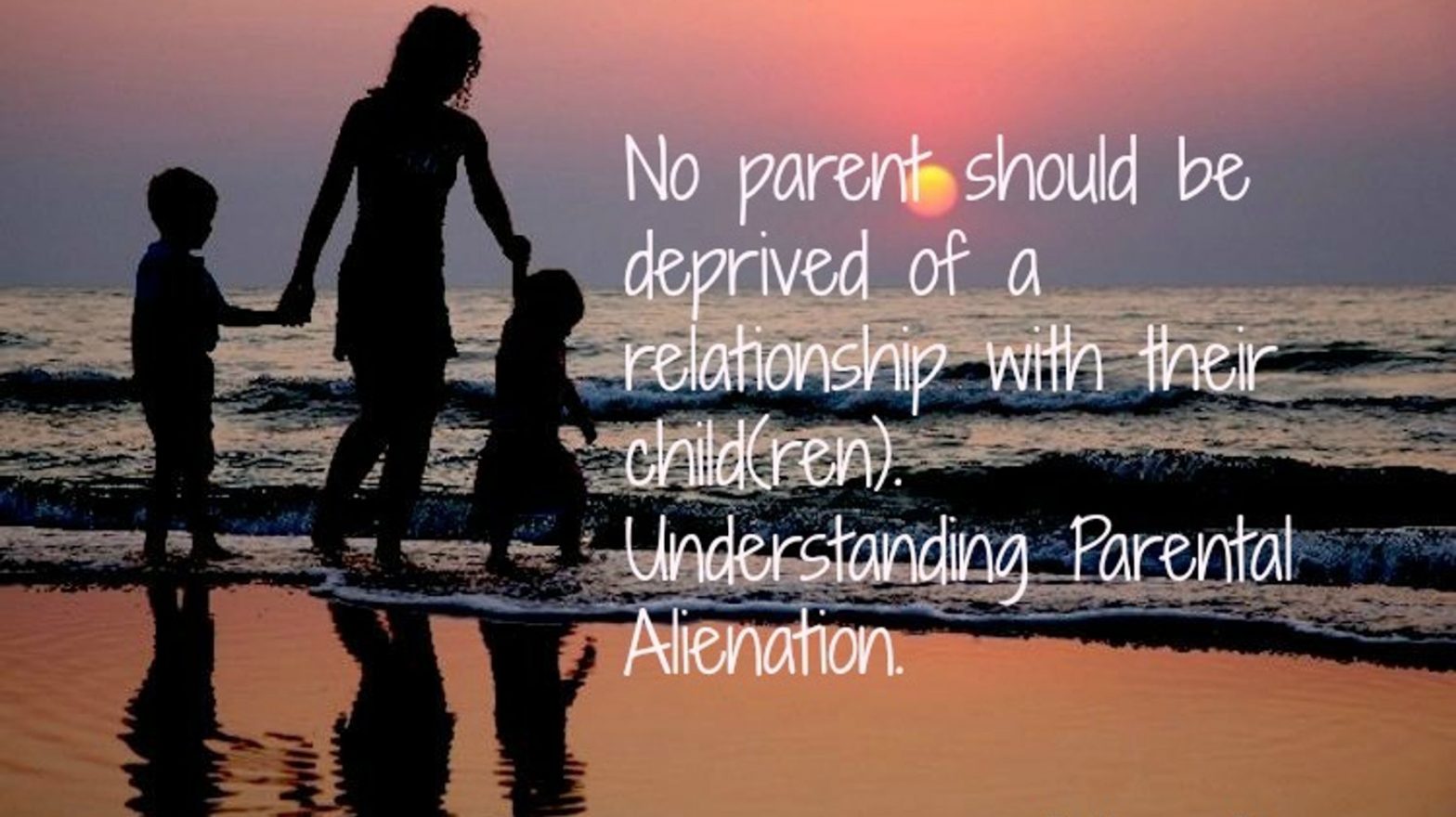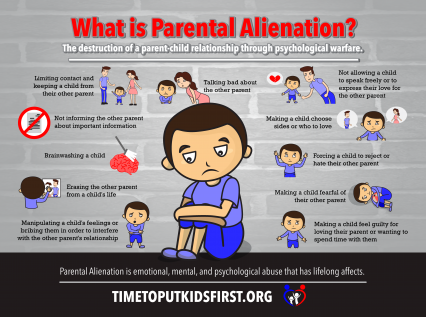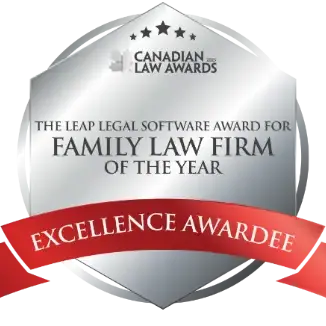
Toronto Parental Alienation Lawyers help protect children and targeted spouses from being alienated from each other. Toronto Parental Alienation Lawyers also defend against false or unsupported Toronto parental alienation claims. In today’s blog Peter Graburn one of our senior Toronto family lawyers explains the characteristics indicating there may be parental alienation in play in your case. Our Toronto office in the downtown financial district.
Toronto Parental Alienation Lawyers Call 416 900 3428

Parental Alienation – perhaps one of the most serious (together with abuse) behaviours in the breakdown of family relationships. In fact, Parental Alienation Syndrome (PAS) is so serious it has recently been added by the World Health Organization (WHO) to its list of international diseases and health related problems. Some view Parental Alienation as a form of child abuse and domestic violence. It is also becoming more prevalent and reported in Canadian family law cases.
Here is a summary of the characteristics that may indicate the need for you to consult with our experienced Toronto family Lawyers.
What is Parental Alienation?
Parental alienation is where one parent, whether naively or intentionally and systematically, attempts to negatively influence the child’s relationship with the other parent, often leading to the complete breakdown of that relationship. This is in stark contrast to Parental Estrangement, where a child naturally for other reasons (ie. age, gender, common-interests, etc.) prefers to spend more time with one parent than the other. Parental alienation arises almost exclusively in high-conflict child custody disputes. It can sometimes lead to long-term damage to the personal growth, mental health and future relationships of the child. As described by Justice Perkins of the Ontario Superior Court of Justice in the case of C.S. v. M.S. ([2007] OJ No. 787) at para. 92:
“Children who are subject to the parental alienation syndrome (I will call them PAS children) are very powerful in their views of the non alienating parent. The views are almost exclusively negative, to the point that the parent is demonized and seen as evil… PAS children feel empowered and are rewarded for attacking the other parent, and feel no remorse or shame for doing so… PAS children have a knee jerk, reflexive response to support the alienator against the targeted parent, often on the basis of minimal evidence or justification…”

In a series of previous articles How to Deal with Parental Alienation we looked at the issue of Parental Alienation in the Alberta context, pointing out some of the common “red-flag” indicators of PAS by alienated children as well as how the Alberta Courts address the issue of Parental Alienation once it has been professionally identified. In this article, we look at how Ontario Courts have addressed the issue of Parental Alienation, including changing (ie. “reversing“) the child custody arrangements of alienating and targeted parents, and granting significant cost awards against the alienating parent.
Reversing Custody
The issue of Parental Alienation has been raised in the Ontario Courts for some time. One of the earliest Ontario cases to directly address Parental Alienation was the 1997 case of DeSilva v. DeSilva ([1997] O.J. No. 330), where the Ontario High Court of Justice (as it then was) declined to change custody of a 13-year old girl whose father had, “(w)hether intentionally or unintentionally, … influenced and alienated his daughter” (para. 21) against the mother as (taking into account the child’s age and wishes) making such a change in custody would be “unrealistic in the circumstances”) (para. 1), to the extent of ordering split custody of the parents’ two children.
In the 2006 case of Rogerson v. Tessaro ([2006] O.J. No. 1825), the Ontario Court of Appeal upheld the trial justice’s decision to change custody of the children from mother to father where the mother was shown to have alienated the children from the father by (among other things) unilaterally uprooting and moving them to a new city (which she told the Court she would do again), and not informing the father of the children’s medications.
In 2009, the Ontario Superior Court of Justice (see: A.G.L. v. K.B.D., [2009] OJ No. 1342) granted sole custody to the father and severely restricted access by the mother who was found to have conducted an “overwhelming campaign” of alienation of the children from their father for years, finding that the mother was incapable of supporting the children in a relationship with the father and therefor would not make decisions “in the best interests” of the children”, over the wishes of the 14-year old child whose views the Court found to be not from her own experiences, but rather as a result of the influences of the alienating mother.
More recently, in a decision presiding Justice Paul W. Nicholson called “a sad case about a mother successfully alienating three children from their father” (see: A.M. v. C.H., 2018 ONSC 6472, at para. 1), the Ontario Superior Court took the extreme measure of removing a 14 – year old child against his wishes (the 2 older siblings were no longer children at the time of trial) from the custody of his alienating mother and placed him in the sole custody of the alienated father (together with reconciliation therapy), and assessed costs against the mother on a full recovery basis in the amount of $200,000.00 (for a fuller review of the cost consequences in this case, see our article: Best Canadian Parental Alienation Lawyers
On appeal, the Ontario Court of Appeal (2019 ONCA 764) fully upheld the Trial Justice’s decision (both on reversing custody and costs) notwithstanding that (following the change in custody) the child had run away, assaulted the father, and was ultimately taken into foster care (a further decision confirmed the father and son later reconciled and were living together).
Parental Alienation is serious – some (including some Courts) have likened it to child abuse and domestic violence.
The Ontario Superior Court of Justice once described such behaviour as “evil” (see: Bruni v. Bruni, 2010 ONSC 6568 at para. 210). Ontario Courts take Parental Alienation seriously; once established, the Courts will act swiftly and decisively to correct and punish it.
But how far will the Courts go in addressing Parental Alienation? Will they change (“reverse”) custody from the alienating parent to the alienated parent, particularly where the alienated child objects and is old enough to have some input into the decision (“a voice but not a choice”)? There has been a significant change in the Ontario Courts’ approach to switching custody (particularly re older children) in the face of parental alienation in the past 25 years. From declining to change custody of a 13-year old girl as it would be “unrealistic in the circumstances”, to reversing custody of a rebellious 14-year old against his wishes, it appears the Ontario Courts are now taking the view a child is never too old or too alienated to attempt to re-establish a healthy relationship with their alienated parent.
MacLean Law is a national law firm with Offices in downtown Vancouver, Calgary, Toronto, Kelowna, Victoria, Surrey and Fort St. John.
Toronto Parental Alienation Lawyers Can Help
Call 416 900 3428
Toronto Parental Alienation Lawyers know that while most family law disputes (particularly “Parental Alienation” disputes) are determined on their own particular facts, credible (sometimes expert) evidence is needed to establish this behaviour, and its effect on the child(ren). Toronto Parental Alienation Lawyers assist their clients to understand the many Court-recognized indicators of Parental Alienation (by both the alienating parent and the alienated child), and the many possible Custody Orders a Court can impose to address such behavior, including “reversing” custody.











